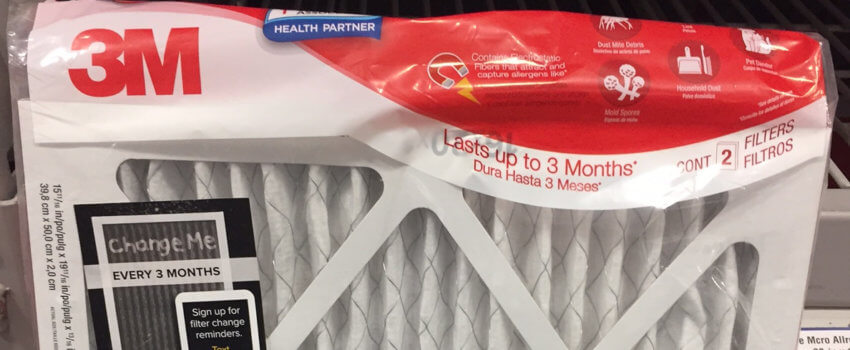
Which Air Filter Should I Use in My HVAC System?
We receive a lot of questions from homeowners about what kind of air filters they should use in their HVAC systems.
Unfortunately, there is no easy answer to this question. The best we can do is educate homeowners so they can make an informed decision about what type of filter to use.
Generally speaking, there are three major types of filters: high-efficiency air filters (expensive), polyester and pleated filters (less expensive) and fiberglass filters (cheap). All filters have a MERV (Minimum Efficiency Reporting Value) rating, which relates to how effectively the filter removes particles and other contaminants. As the MERV rating increases, so does the filter’s ability to remove particles and contaminants — and the filter’s price.
Cheap, inefficient filters can be purchased for as little as $1, but high-efficiency filters can cost over $100. As you can see by looking at this chart, a filter with a MERV rating of 1 removes less than 20% of dust moving through a filter, while a filter with a MERV rating of 16 removes greater than 95% of dust moving through a filter. A filter with a MERV 1 rating is designed to filter particles larger than 10 microns, while filter with a MERV rating of 16 is designed to filter particles as low as .30 microns. The chart also shows the types of particles and contaminants each MERV-rated filter is designed to remove.
One would assume that the solution for homeowners would be to simply use the highest efficiency filter they can afford. This is the wrong answer, though, because a filter with a high MERV rating will decrease the efficiency of your system and could result in damage to your HVAC system. A high-MERV filter will restrict airflow, not only decreasing efficiency but also potentially putting a strain on your HVAC system. Check with your HVAC dealer or manufacturer to determine the highest MERV-rated filter that still allows for maximum airflow in your system.
Here are some key points to consider as you determine which filter to use:
• Never select a filter with a higher MERV rating than is recommended by your system’s manufacturer.
• If you or members of your family have allergies, you may want to use the highest MERV-rated filter you can afford and is recommended by your system’s manufacturer.
• If you have allergies, running your fan (blower) continuously in “on” mode can help to filter air in your home – even when your system isn’t heating or cooling your home.
• No matter what type of filter you use, change it often. Dirty filters can reduce airflow, which will reduce efficiency and can put undo strain on your system. If your filter looks dirty, it is dirty and needs changed.
• The cheap MERV 1 fiberglass filter is designed to protect your HVAC system and does very little to improve indoor air quality. A MERV 8 filter is up to 20 times more efficient at removing particles than the very cheap fiberglass filters!
We wish we could definitively tell you which filter to use, but we can’t. The filter you should use on your home comes down to three factors: 1) cost/budget, 2) how clean you want your indoor air to be, and 3) the specifications of your HVAC system.
If you have any questions or need additional information, please don’t hesitate to contact Housebusters, the area’s most experienced and respected inspection services company. When we do an inspection, we take the time to answer all of your questions, including “What type of air filter should I use in my home?”
Leave a Reply
You must be logged in to post a comment.
